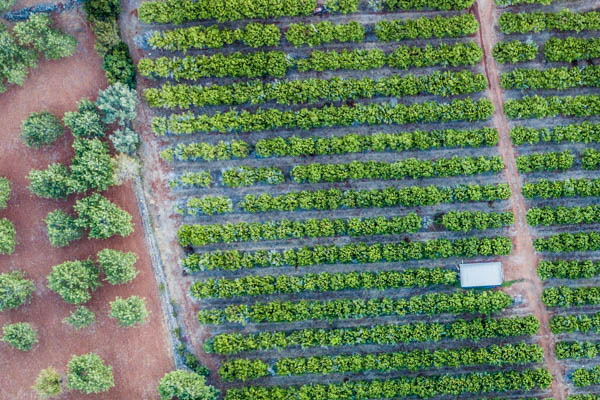
GEF Names Winrock International Winner of Challenge Program for Adaptation Innovation
WINROCK TO DEVELOP GEF-FUNDED NET-ZERO ADAPTATION FINANCE PROGRAM IN PARTNERSHIP WITH FAO
November 8, 2021 – Today at COP26, the Global Environment Facility (GEF) announced that Winrock International is one of the 10 new winners of its Challenge Program for Adaptation Innovation, a competition that provides seed funding for innovative initiatives to help vulnerable countries cope with the climate crisis. Winrock, in partnership with the U.N. Food and Agriculture Organization (FAO), will develop the new GEF-funded Net-Zero Adaptation Finance Program (NZAF).
“Winrock International is extremely appreciative of support received from the GEF for our Net-Zero Adaptation Finance program. The NZAF program, similar to other Winrock climate initiatives, leverages market-based mechanisms and partnerships with the private sector to mobilize climate finance flows to where they are needed most,” said Winrock’s Director of Sustainable Finance Anmol Vanamali. “The race to net-zero should not leave adaptation considerations behind and we are thrilled that the GEF recognized NZAF’s objective of ensuring equitable outcomes. We look forward to partnering with the GEF to make the NZAF program a success and create real change.”
Adaptation financing in the agriculture and land use sectors is needed urgently, especially in least developed countries, because they face some of the most severe impacts of climate change, including shifting agroecosystem boundaries, increased pestilence, and more frequent extreme weather events. However, finance is a significant barrier, with only 5 percent of global climate finance currently flowing to adaptation (i.e. $30 billion out of $600 billion in 2018-19), despite the need for adaptation financing estimated to be as much as $300 billion by 2030. Simultaneously, these sectors are also likely to see a major influx of mitigation financing as they are being targeted for greenhouse gas reductions and removals by private sector companies, especially by food- and agriculture-based companies looking to meet their net-zero targets.
“The Net Zero Adaptation Finance program will build upon Winrock’s expertise in advising private sector corporations including Microsoft and Nestlé in their net-zero initiatives, as well as our experience developing tools for measuring and augmenting resilience efforts in agriculture,” said Winrock’s Vice President of Corporate Affairs and Global Strategy Patricia McCall. “Winrock is committed to scientific and financial innovation as well as environmental integrity in the carbon marketplace.”
With valuable support from the GEF, Winrock International proposed the creation of NZAF to ensure that climate finance flowing to these sectors meets both adaptation and mitigation objectives. The NZAF program has two innovative components: 1) A resilience screening tool called WinRes to be used in partnership with private sector stakeholders procuring emissions reductions from the agriculture and land use sectors; and 2) A blended finance facility to mobilize concessional financing from financial institutions to project developers that deliver adaptation-oriented GHG reduction and removal projects. Winrock will create partnerships with mission-aligned carbon marketplaces, private sector corporations, financial institutions, impact investors and donors during the design, pilot and scaling-up stages to make the NZAF program a success and create sustainable change.
A total of 418 submissions were received in the GEF’s latest call for proposals, spanning a wide range of fields and sectors. Each winning concept is eligible to receive grants ranging from $444,000 to $1.3 million from the GEF-hosted Special Climate Change Fund and Least Developed Countries Fund, which have over the past 20 years provided targeted financing for climate resilience projects in developing and low-income countries.
The GEF’s Chief Executive Officer and Chairperson Carlos Manuel Rodriguez said the strong interest in the competition reflected the potential for the private sector to invest and engage much more in climate resilience solutions, particularly in developing countries where adaptation needs are enormous.
“The toughest environmental challenges in front of us – including how to cope with climate change – require the brightest minds at the table. It is truly encouraging to see this competition draw in so many world-class companies, financial institutions, and technology developers with excellent ideas about how to build more climate-resilient societies, supply chains, food systems, and economies,” Rodriguez said. “When the GEF launched the Challenge Program for Adaptation Innovation two years ago, it opened the door to new partnerships that are making a real difference in the developing countries and least developed countries whose environmental ambitions need urgent support.”
